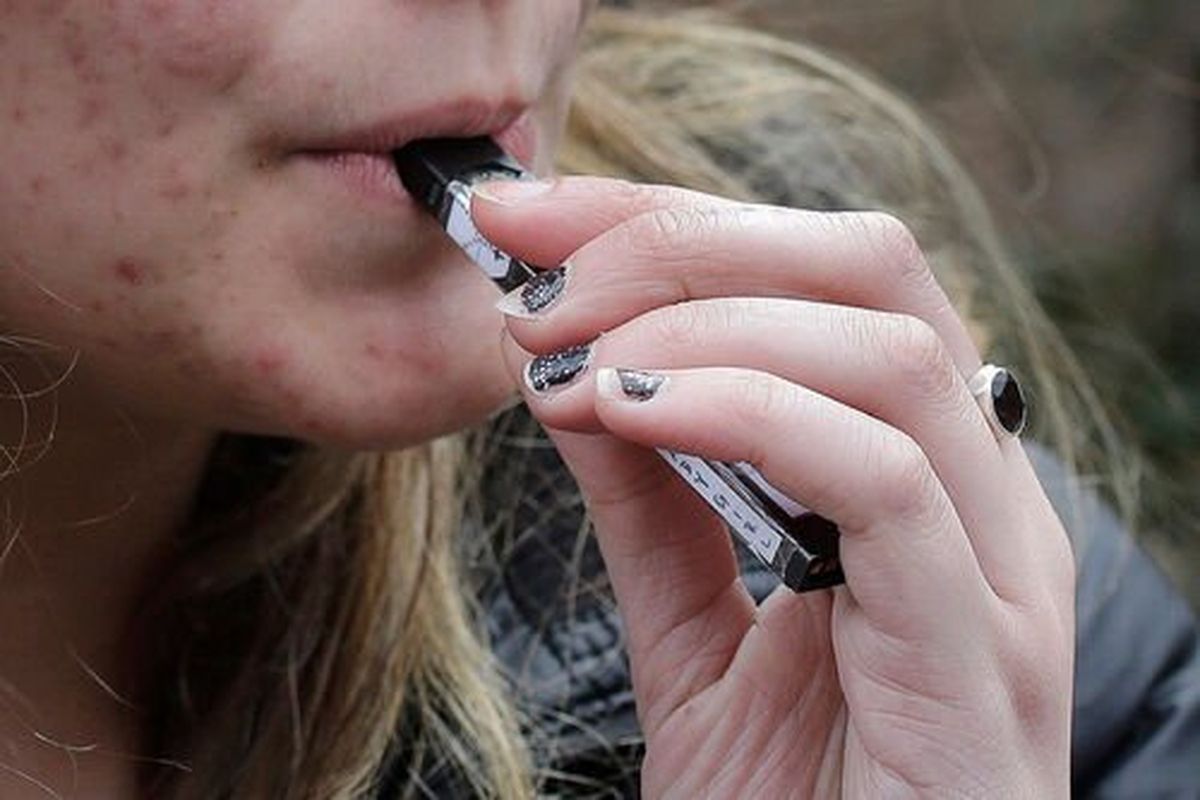Spokane Public Schools joins vaping suit against e-cigarette maker Juul

While reported COVID-19 activity remains low in the Inland Northwest, another health threat is making an unwelcome comeback in classrooms and bathrooms at schools in this area and across the country.
“Vaping continues to be a challenge,” said Shawn Jordan, chief operating officer at Spokane Public Schools.
The district has decided to fight back.
On Wednesday night, the school board directed the district to join a lawsuit against Juul Labs Inc. and the e-cigarette maker’s largest investor, Altria Group Inc.
The move comes on the same day Juul agreed to pay $22.5 million to settle an earlier lawsuit brought by the state of Washington that alleged the company intentionally targeted its products at teenagers while deceiving consumers about the addictiveness of its vaping products.
The national lawsuit by school districts takes a similar tack.
It alleges that Juul downplayed the health risks of vaping while targeting its products to young people through marketing, its use of fruity flavors and the design of the easily-concealable devices.
Vaping is relatively odorless and designed to be discreet. As small as the size of USB sticks, the cartridges can easily be hidden from parents or teachers.
According to the state’s Healthy Youth Survey, use of e-cigarettes by teens grew 20% from 2014 to 2018.
By then, according to Glover Middle School Principal Mark Lund, students as young as 10 were using vaping devices.
Vaping receded from the school scene during the pandemic, but some national surveys show that use has steadily climbed since students returned to buildings.
The cost to school districts – from money spent on detectors to educational programs and staff time spent on handling vaping issues – is the focus of the lawsuit.
Nationally, the suit is being brought by Frantz Law Group APLC of San Diego, Calif., with aid from local law firms around the country.
Recently, local superintendents heard a presentation from Spokane attorney Paul Clay, who explained the process.
School districts may join the lawsuit by filling out a form detailing any financial harm the district has suffered to date from dealing with the vaping issue.
After legal fees are deducted, any funds recovered from a suit would go back to schools and communities for prevention, education and deterrence, including support for those addicted and the hiring of counselors with addiction backgrounds.
Districts would not have to pay legal fees, though according to the district’s resolution it will take resources in the form of employee time and effort.
Earlier on Wednesday, state Attorney General Bob Ferguson announced that Juul must pay $22.5 million to resolve the lawsuit brought by the state .
Ferguson sued the company in 2020 after it used ads with young models on social media to target underage users, leading to what Ferguson’s office called a “pervasive and staggering rise in e-cigarette use and nicotine addiction among youth.”
“Juul put profits before people,” Ferguson said in a statement.
The $22.5 million must be paid over the next four years.
The Attorney General’s Office will use the money to establish a new health equity unit to respond to discriminatory health care practices.
Juul must also stop all advertising that appeals to youth and most social media promotion. It must also accurately detail the content and effects of nicotine in its products.
It must also take part in a secret shopper program, the strictest in the company’s history, according to Ferguson. It will require Juul to send secret shoppers to conduct no fewer than 25 compliance checks per month on Washington retailers. The shoppers must confirm retailers are complying with age verification requirements.
The settlement also requires Juul to implement practices to prevent underage youth from purchasing products online.
Staff writer Laurel Demkovich contributed to this report.